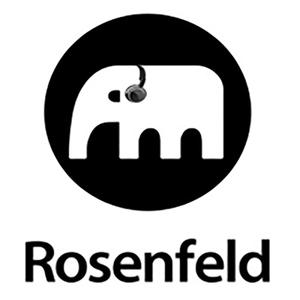Taking Notes and Nurturing Your Knowledge Garden with Jorge Arango
Jorge Arango is an Information architect, author, and educator, and he’s written a new book, Duly Noted, about the age-old practice of notetaking.
If you’re like me, you’ve been taking notes since your school days. Back then, we used notebooks, a Trapper Keeper, and sticky notes – anything that could help us ace a test, remember important tidbits, and consolidate ideas. Notes are an extension of the mind. But it was always a headache to organize them, synthesize them, and recall them at the right time.
Enter the digital age – which tried to improve on the humble art of notetaking, but apps like Notes and Stickies tried to replicate digitally what we were using in the real world. Newer apps like Obsidian let go of real-world metaphors by utilizing three principles: shorter notes, connecting your notes, and nurturing your notes to build a knowledge garden that will serve you for the rest of your life.
If you bring value to the world through your thinking, you have the responsibility to look after your thinking apparatus. Duly Noted will augment, magnify, and extend your capacity to think well. Externalizing your mental processes is one of the most powerful means we have to think better. If used well, the humble note will help you be a better thinker and a more effective human.
What you’ll learn from this episode:
- A history of notetaking tools
- Why notetaking is a personal endeavor
- How digital notetaking tools have evolved
- About Jorge’s new book and how, upon reading it, you just might become a better thinker and increase your effectiveness
Quick Reference Guide
[0:00:12] Introduction of Jorge and his books
[0:01:18] Introduction of Jorge’s new book on taking notes and creating a knowledge garden, Duly Noted
[0:09:47] Books that will make you a better knowledge worker
[0:14:14] Design in Product Conference
[0:15:35] Managing knowledge with computers
[0:26:03] Knowledge as a garden
[0:28:09] On tools for nurturing a knowledge garden
[0:33:08] How Jorge uses AI with Obsidian
[0:36:37] Jorge’s gift for listeners
Resources and links from today’s episode:
Information Architecture for the Web and Beyond by Louis Rosenfeld, Peter Morville, and Jorge Arango https://www.amazon.com/Information-Architecture-Beyond-Louis-Rosenfeld/dp/1491911689
Living in Information: Responsible Design for Digital Places by Jorge Arango https://rosenfeldmedia.com/books/living-in-information/
Duly Noted by Jorge Arango https://rosenfeldmedia.com/books/duly-noted-extend-your-mind-through-connected-notes/
O’Reilly’s book Mind Hacks by Tom Stafford https://www.oreilly.com/library/view/mind-hacks/0596007795/
Tools for Thought by Howard Rheingold www.rheingold.com/texts/tft/
Design in Product Conference, November 29 https://rosenfeldmedia.com/design-in-product/
Roam Research https://roamresearch.com/
Obsidian https://obsidian.md/
The Extended Mind: The Power of Thinking Outside the Brain by Annie Murphy Paul https://anniemurphypaul.com/books/the-extended-mind/
Figure it Out: Getting from Information to Understanding by Karl Fast and Stephen Anderson https://www.amazon.com/Figure-Out-Getting-Information-Understanding-ebook/dp/B085412Q1X
Build a PKG (Personal Knowledge Garden) Workshop https://buildapkg.com
16 November 2023, 2:00 pm
